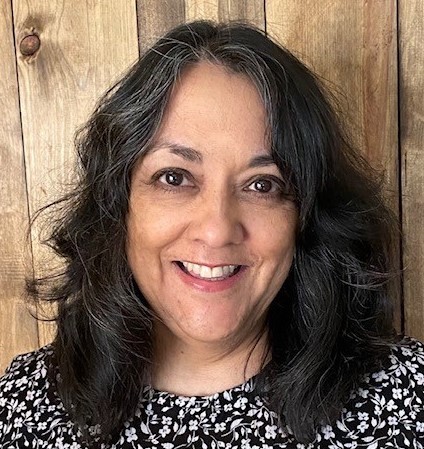
Project BEYOND-2 (Building Equitable Youth Opportunities for Nursing Diversity) is a federally funded program at Marquette supported by the Health Resources and Services Administration that works to improve nursing workforce diversity by increasing the numbers of Bachelor of Science in Nursing students and graduates from disadvantaged backgrounds, including underrepresented racial and ethnic minorities.
Through such efforts, the College of Nursing has seen a sustained increase in the diversity of its student body — 27% are now students of color, up from 22% in fall 2019.
Dr. Terrie Garcia is director of Project BEYOND-2.
Here in a Q&A, she discusses her journey to the healthcare field, Project BEYOND-2, the diversity challenges in health care and more.
Where did you grow up?
I am a second-generation Mexican American woman, daughter of migrant farm workers, who was the first in my family to go to college. I was born in Crystal City, Texas, a small town, about 35 miles from the Texas-Mexico border.
What originally brought you to the healthcare field?
It took some time for me to find my nursing path. I never thought I would be pursuing a career in nursing but after I got married, I became friends with someone who was a nurse. She talked to me about the field and encouraged me to apply to a nursing program. I started my career in San Antonio, Texas, a majority-minority city. I also worked in Panama when my husband was stationed in the Air Force.
What I noticed most about nursing was that there were few nurses who looked like me, even in a majority-minority city like San Antonio.
After my husband retired from the Air Force, we moved to Wisconsin. I began working as a community health nurse and quickly realized how glaringly evident the lack of minority nurses was in the workforce.
As a result, I started the first National Association of Hispanic Nurses Southeastern Wisconsin Chapter to raise awareness about the profession and encourage more Hispanics to pursue nursing as a career. The chapter was highlighted in the news and Dr. Janet Krejci — who at the time was a nursing professor in the College of Nursing — reached out to me to see if I was interested in a position at Marquette to oversee a program to support nursing students from underrepresented backgrounds.
As such my Marquette career began in 2007 when I took on the role of project coordinator for Project BEYOND. I have to say that accepting that position was the best decision I ever made.
What is Project BEYOND-2’s mission?

The goals of the project are to recruit, retain and graduate students from underrepresented backgrounds in nursing. Strategies include promoting college readiness by offering an on-campus, summer pre-admission intensive program for new freshmen, offering academic enhancements to promote nursing career socialization and success, mentoring, networking, role modeling and tutoring; and providing scholarships and stipends.
What is the greatest challenge when it comes to increasing diversity in nursing?
I think there are several challenges:
- Cost of college tuition. The high cost of college tuition can be a hurdle for students from economically disadvantaged backgrounds; therefore, more funding is needed to help students offset the costs of tuition and general living expenses.
- Lack of knowledge about the nursing profession in grades K-12. Initiatives and funding to implement proactive outreach earlier in the educational pipeline are needed to encourage students to explore nursing as a profession and provide guidance and mentorship to be college ready.
- Shortage of faculty of color. Similar to the nursing workforce, there is unequal representation of diverse nursing faculty. Intentional and strategic efforts are needed to attract and retain diverse faculty. This is very important because it creates a more culturally inclusive learning environment, helps create social equity for students and improves persistence, retention and graduation rates among students of color.
What are the disadvantages in having a health care workforce that lacks diversity?
I think there is value in having a diverse health care workforce. A diverse workforce, especially marginalized racial and ethnic minorities, can play a crucial role in achieving health equity. We need to have a workforce that mirrors our patient populations.
Diversity promotes an inclusive environment and addresses problems related to racial and cultural biases, provides opportunities to learn/enhance culturally sensitive practices, adjust approaches to care and improves health outcomes overall.
What other programs/efforts does Marquette offer to help students from underrepresented backgrounds?
We received funding from the Health Resources and Services Administration to implement a two-year Eldercare Enhancement (E2) grant to offer programming for nursing students from underrepresented backgrounds. The purpose of this program was to expand their knowledge about eldercare.
Eight Project BEYOND-2 students participated in the grant program during academic years 2020-22. They received special educational sessions to build their eldercare knowledge. As part of the program, students completed a clinical rotation in which they provided team-based care to elderly veterans living in the community.
Additionally, the College of Nursing was awarded a five-year grant to provide up to half tuition to eligible Project BEYOND-2 students.
What’s next?
We in (the College of Nursing) are exploring opportunities to implement an enrichment program to provide students with development to support success in biochemistry and anatomy and physiology, two rigorous courses required during freshman year.
We are also exploring ways to grow the number of diverse faculty and staff and continuing to expand diversity, equity and inclusion offerings and resources to “create an environment of inclusivity, transparent teaching design and equitable support in the college for faculty, staff and students.”
How might Marquette University be a catalyst for that change?
I think improving DEI at Marquette is ongoing. This is a journey that requires intentional collaboration and a collective effort from leaders, faculty, staff and students. The College of Nursing is committed to increasing diversity and promoting a sense of belonging for all. DEI is rooted in our college strategic plan, which aims to continue enhancing teaching and learning excellence, leadership in practice, research engagement, while advancing diversity within its faculty, staff and student body.


